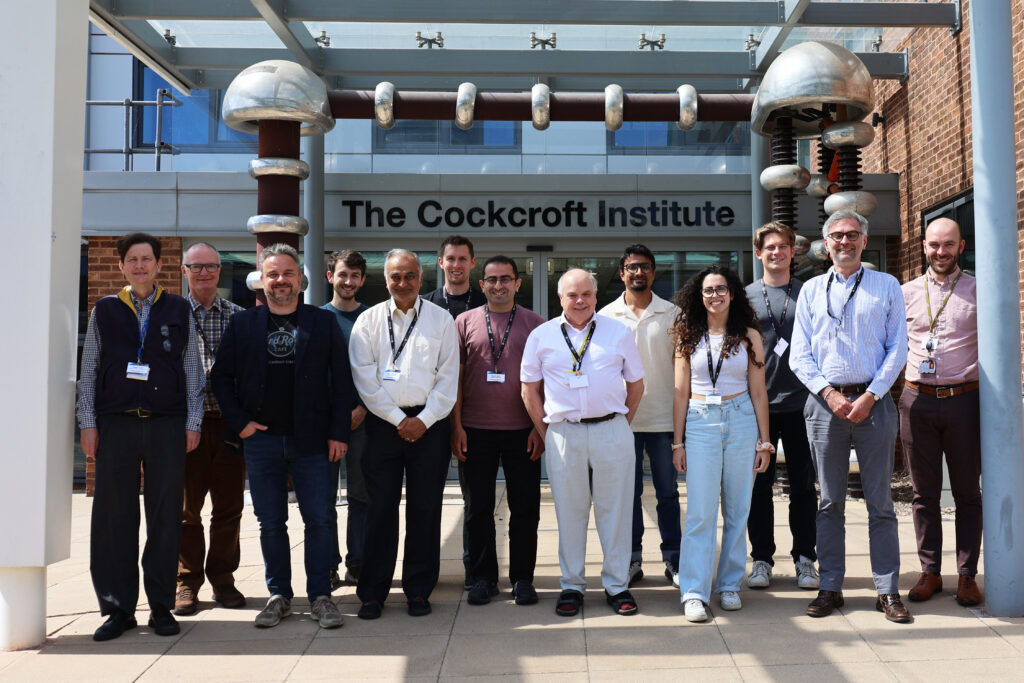Leading researchers from the AWAKE-UK collaboration met in Daresbury on 2nd July to review progress and chart the future of the UK’s contribution to the Advanced Proton Driven Plasma Wakefield Acceleration Experiment (AWAKE) at CERN.
The meeting highlighted significant advancements in beam diagnostics, plasma cell development, and electron injection systems, underscoring the UK’s vital role in this international endeavour.
The AWAKE experiment aims to revolutionize particle acceleration by harnessing the immense electric fields generated when a proton beam travels through a plasma. This innovative technique achieves acceleration gradients up to 1,000 times higher than conventional radiofrequency accelerators, leading to much more compact accelerators for particle physics research.
AWAKE is one of the key projects for the Cockcroft Institute; four of its partner institutions (the universities of Lancaster, Liverpool, Manchester, and Strathclyde) form part of the STFC-funded AWAKE-UK collaboration, together with the University of Oxford, Imperial College London, and University College London. The Cockcroft teams are making leading contributions to the international AWAKE project in the areas of beam diagnostics, electron injection and synchronisation, and plasma simulations.
Today’s meeting saw presentations detailing the latest advances made since the last internal gathering in October 2024. Discussions covered:
- Electron Injection Lines: Updates on the design of precise electron injection systems, critical for seeding the plasma wakefields effectively, as well as the witness electron beam to be accelerated in a second stage.
- Beam Diagnostics: Progress in designing and implementing novel diagnostic tools to accurately characterize the properties of the accelerated electron beam within the plasma. This includes advances in measuring bunch length, transverse profile, and emittance.
- Electron Spectrometer: Updates in the development of the electron spectrometer to measure the energy and emittance of the accelerated beam.
- Plasma Measurements: Insights into the ongoing work on understanding and optimizing the discharge plasma source to demonstrate the scalability of the AWAKE experiment to higher energies.
The collaboration also discussed potential options to mitigate the recent STFC announcement that no further funding will be provided to this extremely successful experiment, due to current financial constraints. This risks damaging a world-class experiment where UK researchers have made leading contributions for many years, and losing talent that is critically needed.
Prof Welsch said: “The AWAKE-UK collaboration continues to make excellent progress across all fronts, from plasma cell development to precision diagnostics. The meeting has impressively shown just how far we have already come, but also where we would like to go in the future with our partners at CERN and across Europe. The UK remains at the forefront of this potentially transformative technology, and I have no doubt that this will help shape the next generation of particle accelerators.”
The AWAKE experiment has already achieved significant milestones, including the successful acceleration of electrons to 2 GeV in just 10 metres of plasma. The ongoing second run aims to further upscale this technique, paving the way for applications in particle physics and beyond. The insights and developments from the AWAKE-UK collaboration are set to play a crucial role in achieving these ambitious goals.

